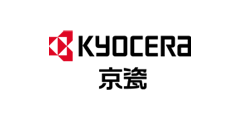Kyocera and Digital Grid Begin Joint Demonstration of Renewable Peer-to-Peer Power

Project Aims to Help Achieve the KYOCERA Group's Long-term Environmental Targets, Demonstrate Effectiveness of Non-FIT Renewable Energy System.
Kyocera Corporation and Digital Grid Corporation announced a joint project to demonstrate a renewable peer-to-peer (P2P) power system beginning January 2021 at Kyocera’s Yokohama Nakayama office. The P2P demonstration is part of the Kyocera Group’s Long-term Environmental Target initiatives to reduce the company’s greenhouse gas emissions (Scope 1, 2)*1 by 30% by 2030*2 and will help build a P2P power service for companies that are a part of the global “RE100” initiative. The P2P demonstration will use electricity generated by Kyocera’s solar modules, and distributed to consumers through predictive artificial intelligence (AI) technology.
■ Joint Research Background
As climate change continues, increased use of renewable energy will be essential for protecting our global environment and achieving Sustainable Development Goals (SDGs). Procuring enough renewable energy to meet the operating requirements of business enterprises has become one of the main challenges facing the RE100 initiative. Relatedly, the Japanese government has set a target of eliminating greenhouse gas emissions by 2050, and Japanese businesses will come to rely on renewable energy to respond to these challenges.
The joint research project will use Kyocera solar modules, which have demonstrated high quality and long-term reliability, combined with the P2P “Digital Grid Platform (DGP),” the first*3 private supply-demand electric power exchange in Japan, to verify future demand for renewable energy and electric power services.
■ Joint Research Outline
Supply and demand of surplus electricity from residential Feed-in Tariff (FIT)*4 programs at Kyocera employees’ homes, plus power from the Kyocera Non-FIT Photovoltaic (PV) Power Plant (Asahi-city, Chiba prefecture), will be adjusted using the "Digital Grid Platform (DGP)” and supplied to Kyocera’s Yokohama Nakayama office. Kyocera will also use the electricity generated by its on-site non-FIT PV Power Plant. If the combined electricity generated is insufficient to meet demand from the Yokohama Nakayama office, any shortfall will be supplied using power purchased from the Japan Electric Power Exchange (JEPX) with non-fossil-fuel energy certificates and tracking information from Kyocera's existing FIT photovoltaic power plant. This Kyocera office will use solar power exclusively throughout the demonstration from January 2021 to March 2022.
Although more than 20 companies are currently participating in the "Digital Grid Platform (DGP)" so far, this is the first demonstration of non-FIT renewable energy. Through the joint project, Kyocera and Digital Grid will verify the effectiveness of a P2P power trading service and confirm its potential for use by businesses, in addition to helping achieve RE100.
*1 Scope 1: Direct emissions from fuel use; Scope 2: Indirect emissions from the use of electricity and heat purchased from outside sources.
*2 Compared to 2013 levels.
*3 Commercial operation started in February 2020. Based on research by Digital Grid Corporation (as of December 9, 2020).
*4 Under Japan's feed-in tariff law, if a renewable energy producer requests an electric utility to sign a contract to purchase electricity at a fixed price and for a long-term period guaranteed by the government, the electric utility is obligated to accept this request.

Conceptual diagram of the demonstration
- +1 Like
- Add to Favorites
Recommend
- Solar Modules for Energy-efficient Lanterns – The SDB13HS is a 1A/30V Schottky diode in a small and slim PowerSOD-323 package
- Amphenol-GIS Distribution Block PDB Solar Serves as a Transfer Point between Solar Panels and Switches in Solar Applications
- Reduce Installation Steps for Solar Farms with SOLARLOK SLK 2.0 DC Plug and Splice Connectors
- Vincotech‘s dual boost and triple boost modules the right choice for 1500 V solar inverters
- EPC GaN FETs help Solarnative achieve industry-leading power density for solar microinverters
- Vincotech’s 1200V/30A and 50A three-phase NPC Modules are Optimized for Three-phase Solar Applications
- GRL Solar Power Solutions: Isolator Switch, Fuse Switch Disconnector And HRC Fuse Link
- Using Vincotech‘s Dual Booster + H6.5 Inverter Modules Simplifies Your Next Single-phase Solar Application Project
This document is provided by Sekorm Platform for VIP exclusive service. The copyright is owned by Sekorm. Without authorization, any medias, websites or individual are not allowed to reprint. When authorizing the reprint, the link of www.sekorm.com must be indicated.





























































































































































































































































































































































































































































































































































































































































































































































































































































































